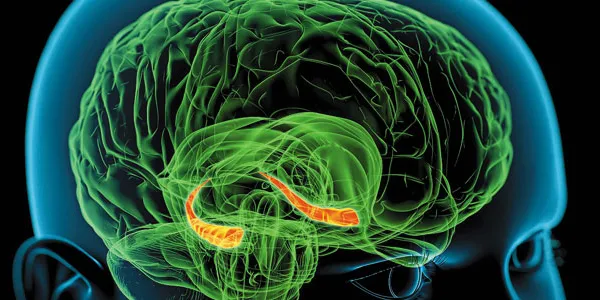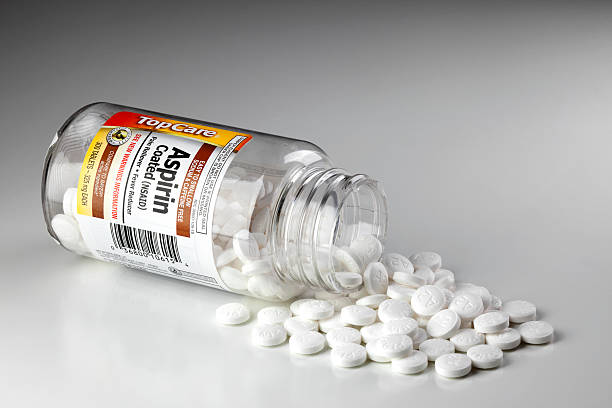Testosterone is more than just a hormone; it is a driver of vitality, confidence, and strength. While it is often associated with masculinity, testosterone plays an essential role in the health of both men and women. In men, it is the primary sex hormone responsible for muscle development, bone density, energy levels, libido, and sperm production. In women, though present at lower levels, it supports bone health, mood regulation, and fertility.
Declining testosterone levels are a natural part of aging, but lifestyle factors—such as poor diet, chronic stress, and lack of exercise—can accelerate this decline. Symptoms of low testosterone include fatigue, decreased muscle mass, low libido, mood swings, and difficulty concentrating. Fortunately, the foods we eat can profoundly influence hormonal balance. Nature provides an array of nutrient-dense foods that support testosterone production, maintain hormonal health, and promote overall well-being.
Before exploring these foods, it’s important to understand how testosterone is made and what the body needs to sustain optimal levels.
How Testosterone Is Produced in the Body
Testosterone is synthesized primarily in the testes in men and in smaller amounts in the ovaries and adrenal glands in women. The process begins in the brain, where the hypothalamus and pituitary gland release signaling hormones—gonadotropin-releasing hormone (GnRH), luteinizing hormone (LH), and follicle-stimulating hormone (FSH). LH, in particular, triggers the testes to produce testosterone from cholesterol.
This means that nutrition plays a vital role. Cholesterol provides the raw material, while vitamins, minerals, and antioxidants ensure that the entire process functions efficiently. A diet lacking in key nutrients can hinder testosterone production, while a diet rich in supportive foods can help restore balance and vitality.
The Relationship Between Diet and Testosterone
Every bite of food we eat can either nurture or undermine our hormonal health. Diets high in processed foods, trans fats, refined sugar, and excessive alcohol weaken testosterone production by causing inflammation, obesity, and insulin resistance. On the other hand, whole foods rich in healthy fats, lean proteins, essential minerals, and phytonutrients support not only testosterone but also overall metabolic health.
Testosterone-boosting foods generally fall into several categories:
- Foods rich in healthy fats that provide cholesterol for hormone synthesis.
- Protein sources that build muscle and regulate insulin.
- Zinc- and magnesium-rich foods that directly support testosterone production.
- Antioxidant-rich foods that reduce oxidative stress, protecting reproductive health.
- Nutrient-dense foods that maintain a healthy weight and reduce inflammation.
With this foundation, let us explore the best foods to naturally enhance testosterone levels and why they are so effective.
Oysters and Other Zinc-Rich Foods
Few foods are as celebrated for boosting testosterone as oysters. These shellfish are one of the richest sources of zinc, a mineral crucial for sperm production, hormone regulation, and immune function. Zinc deficiency has long been linked to hypogonadism (low testosterone production) and infertility in men. Just a small serving of oysters provides several times the daily recommended intake of zinc, making them a natural powerhouse for reproductive health.
Other excellent zinc-rich foods include beef, lamb, pumpkin seeds, chickpeas, and cashews. While supplements can help in cases of deficiency, whole food sources of zinc are better absorbed and provide additional nutrients.
Fatty Fish and Omega-3s
Healthy fats are vital for testosterone synthesis, and few foods deliver them as effectively as fatty fish such as salmon, mackerel, and sardines. These fish are rich in omega-3 fatty acids, which reduce inflammation, support cardiovascular health, and optimize cell membrane function. Studies show that men with higher omega-3 intake tend to have better sperm quality and hormonal balance.
Omega-3s also help lower cortisol, the stress hormone that competes with testosterone. By reducing chronic stress levels, fatty fish indirectly support a healthier testosterone profile. For those who don’t consume fish, plant-based sources like flaxseeds, chia seeds, and walnuts also provide omega-3s, though in a slightly different form (ALA) that the body must convert.
Eggs: Nature’s Hormone Package
Eggs, particularly the yolks, are another excellent food for boosting testosterone. Yolks are rich in cholesterol, vitamin D, and healthy fats—all crucial building blocks for hormone synthesis. Contrary to old myths about cholesterol being harmful, modern research shows that dietary cholesterol is not the villain it was once thought to be. In fact, moderate consumption of eggs can provide the body with essential raw materials to support testosterone production.
The protein in eggs also aids muscle repair and growth, further supporting an anabolic (muscle-building) environment in the body. A diet that includes whole eggs, in balance with other sources of protein and vegetables, can provide an affordable and effective way to support hormonal health.
Leafy Green Vegetables and Magnesium
Spinach, kale, Swiss chard, and other leafy greens are not only nutrient-dense but also rich in magnesium. This mineral plays a direct role in testosterone production by influencing the bioavailability of free testosterone in the bloodstream. Free testosterone is the active form of the hormone that the body can actually use.
Research has shown that men with higher magnesium levels tend to have higher testosterone. In addition to supporting hormones, leafy greens provide antioxidants, fiber, and vitamins that support cardiovascular health and reduce inflammation—both critical for long-term vitality.
Pomegranates: The Ancient Symbol of Fertility
Pomegranates have been revered for centuries as a symbol of fertility and vitality, and modern science supports their reputation. Rich in antioxidants, particularly polyphenols, pomegranates help reduce oxidative stress in the body. Oxidative stress damages cells, including those involved in hormone production and sperm health.
Studies suggest that regular consumption of pomegranate juice can increase testosterone levels, improve sperm quality, and even elevate mood. This fruit’s combination of antioxidants and anti-inflammatory compounds makes it a delicious and potent ally for reproductive health.
Nuts and Seeds: Small Packages of Power
Almonds, walnuts, sunflower seeds, pumpkin seeds, and Brazil nuts are compact nutritional powerhouses. They provide healthy fats, zinc, magnesium, and selenium—all crucial nutrients for testosterone production. Selenium, found in high amounts in Brazil nuts, is particularly important for sperm health and motility.
However, moderation is key. Nuts are calorie-dense, and excessive intake can contribute to weight gain, which may negatively affect testosterone. Incorporating a small handful of nuts or seeds into a balanced diet is enough to reap their hormonal benefits.
Garlic and Onions: Hidden Allies for Hormonal Health
Garlic and onions, staples in many cuisines, may also contribute to higher testosterone levels. They contain compounds like allicin that reduce cortisol levels, indirectly supporting testosterone production. Animal studies suggest that these foods can increase testosterone and improve testicular health.
Onions, in particular, are rich in antioxidants and flavonoids that protect cells and support blood circulation. While more human research is needed, the evidence so far suggests that these humble kitchen ingredients are more than just flavor enhancers—they are subtle supporters of male vitality.
Extra Virgin Olive Oil: Liquid Gold for Hormones
Olive oil, especially extra virgin olive oil, is central to the Mediterranean diet and is known for its heart-healthy benefits. What is less commonly known is its role in supporting testosterone. Olive oil provides monounsaturated fats, which are linked to higher testosterone levels. It also contains vitamin E and antioxidants that protect hormone-producing cells from oxidative damage.
Replacing processed oils and trans fats with olive oil not only improves cardiovascular health but also creates an environment where testosterone can thrive.
Berries and Other Antioxidant-Rich Fruits
Strawberries, blueberries, raspberries, and blackberries are loaded with antioxidants that reduce oxidative stress and inflammation—two major factors that can suppress testosterone production. These fruits are also low in sugar compared to other fruits, making them excellent for maintaining insulin sensitivity.
Healthy insulin function is closely tied to testosterone, as insulin resistance and obesity are major risk factors for low testosterone. By supporting blood sugar balance and protecting cells from damage, berries indirectly support hormonal health.
Beef and Lean Meats
Beef, especially grass-fed beef, provides essential nutrients such as zinc, iron, and high-quality protein. These nutrients are directly tied to testosterone production and overall reproductive health. However, the type and quality of meat matter. Processed meats and excessive consumption of fatty cuts can increase inflammation and risk of cardiovascular disease, undermining long-term health.
Choosing lean cuts and incorporating them into a balanced diet can provide the benefits of zinc and protein without the negative effects associated with overconsumption.
Dark Chocolate and Cacao
Dark chocolate (with a high percentage of cacao) contains flavonoids and antioxidants that support circulation and reduce stress. Cacao is also rich in magnesium and healthy fats, both of which aid testosterone production. The key is moderation—dark chocolate provides benefits without the excessive sugar found in milk chocolate.
The Importance of Vitamin D Foods
Vitamin D is often referred to as the “sunshine vitamin,” but it is more accurately a hormone precursor. Deficiency in vitamin D is strongly linked to low testosterone. While sunlight is the best source, foods like fortified dairy, fatty fish, egg yolks, and mushrooms exposed to UV light can help increase levels.
Ensuring adequate vitamin D intake through a combination of sun exposure, diet, and possibly supplementation is critical for hormonal health, immune function, and mood regulation.
Avoiding Testosterone Killers
Just as some foods support testosterone, others suppress it. Diets high in refined sugar, trans fats, processed foods, and excessive alcohol disrupt hormonal balance. High sugar intake spikes insulin and promotes obesity, both of which are linked to lower testosterone. Trans fats found in fried foods and packaged snacks increase inflammation and damage cell membranes, impairing hormone production.
Soy products, which contain phytoestrogens, are controversial. While moderate intake may not be harmful, excessive consumption could potentially affect hormone balance in sensitive individuals. The key is moderation and variety.
Lifestyle and Food Synergy
Food alone cannot maximize testosterone. Lifestyle factors like regular resistance training, adequate sleep, and stress management work synergistically with diet. A man who eats well but sleeps poorly or lives under constant stress will struggle to maintain optimal testosterone. Conversely, combining a nutrient-rich diet with healthy habits creates the ideal environment for hormonal vitality.
Health Beyond Hormones
While the focus here is on testosterone, the foods that support hormonal balance also promote overall health. Foods rich in antioxidants reduce the risk of chronic disease, heart-healthy fats improve circulation, and nutrient-dense vegetables support immunity and digestion. In other words, a testosterone-boosting diet is not just about masculinity or reproductive health—it is about thriving as a whole human being.
A Lifelong Approach to Testosterone and Vitality
Testosterone naturally fluctuates throughout life, peaking in early adulthood and gradually declining with age. But the rate of decline and its impact on quality of life can be profoundly influenced by lifestyle. By choosing nutrient-rich, whole foods and avoiding dietary pitfalls, individuals can preserve vitality, strength, and resilience well into later years.
Health is not built in a day but cultivated over time. The foods we eat are daily choices that shape not only our hormonal balance but also our energy, confidence, and zest for life. From oysters to olive oil, from spinach to pomegranates, nature offers an abundant menu for sustaining one of the body’s most vital hormones.
To eat for testosterone is to eat for life itself—a life of strength, clarity, and vitality that radiates from within.






